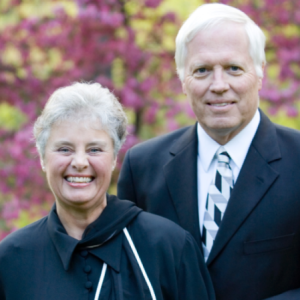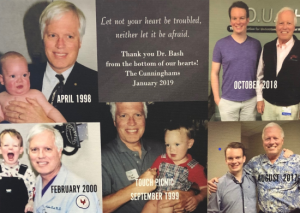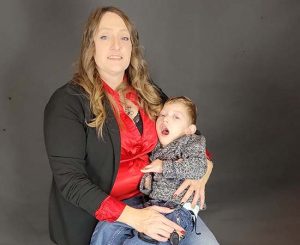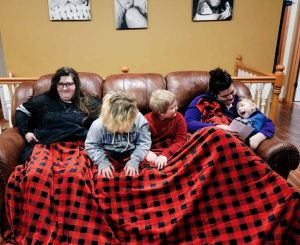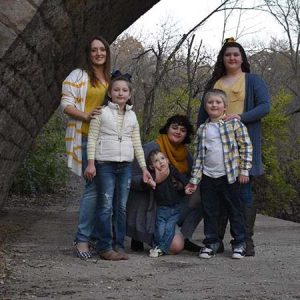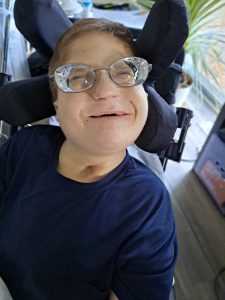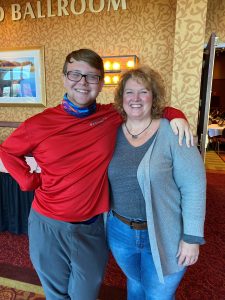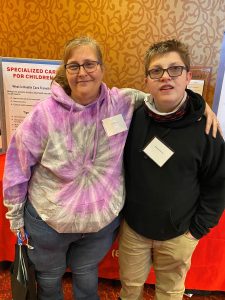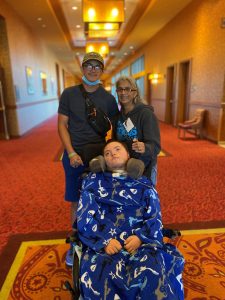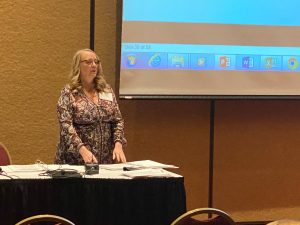Public Comment Period for MFTD Waiver Updates
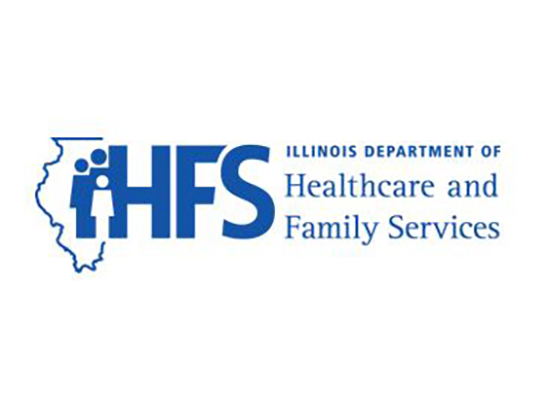
The deadline to share feedback is June 30.
Families have an opportunity to share feedback on proposed updates to the Medicaid Home and Community-Based Services Waiver for Medically Fragile, Technology Dependent (MFTD) Children.
The Illinois Department of Healthcare and Family Services (HFS) is the Medicaid agency responsible for the MFTD waiver. Many families in the Home Care Program have children who receive services through the MFTD waiver.
HFS must renew Illinois’ MFTD waiver every five years. HFS and the Division of Specialized Care for Children (DSCC) have partnered to make several changes as part of this year’s renewal process.
To review the full list of waiver updates, you can:
- See page 2 of the electronic copy of the proposed renewal application.
- Review a hard copy at HFS’ offices at:
- 201 South Grand Ave. E.,
Springfield, IL 62763 - 401 S. Clinton
Chicago, IL 60607
- 201 South Grand Ave. E.,
HFS now seeks public input on these changes. (You can read the public comment notice on the HFS website.)
The deadline to provide feedback is June 30.
You can share your feedback in two ways:
- Via email to HFS.HCBSWaiver@illinois.gov
- Via mail to the Illinois Department of Healthcare and Family Services, Attention: Waiver Operations Management, 201 South Grand Ave. E., 2FL, Springfield, IL 62763
HFS will send your comments to the federal Centers for Medicare and Medicaid Services as part of the waiver approval process.
If you have questions, please contact HFS’s Waiver Operations Management Unit at (217) 524-4148 or (844) 528-8444.
Meet Dr. Stephen Bash, Our Medical Advisory Board Chair
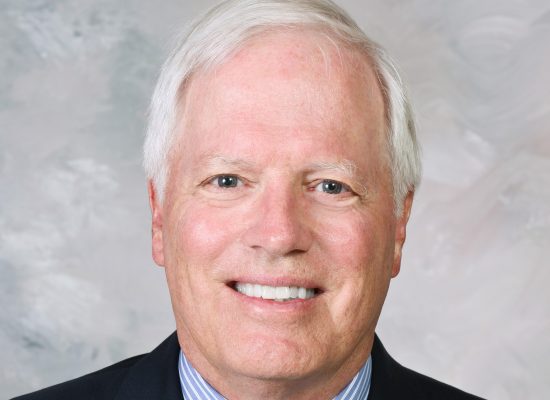
“The help DSCC provides is more important now than it’s ever been.”
Division of Specialized Care for Children (DSCC) Medical Advisory Board Chair Dr. Stephen Bash is a “Hoosier” born and raised.
He attended college and medical school at Indiana University. While doing his rotation at Riley Children’s Hospital in Indianapolis, he fell in love with pediatric cardiology.
“I had completed one year of training, but it takes two years to be board certified for pediatric cardiology,” Bash explained. “I had to make a decision to either continue my training or join my dad at his practice.”
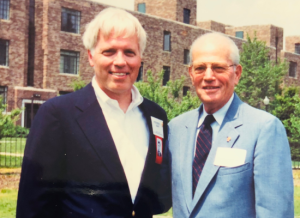
He joined the practice and got hands-on experience treating children with many kinds of complex healthcare needs.
Bash was partially trained and was one of only three pediatric cardiologists in the state of Indiana. For 11 years, he referred his patients, who came from multiple states, to the two specialists he had trained with at Riley Children’s Hospital.
Bash was 40 years old when his dad started to retire.
“So, I figured it was time for a new wife, a Porsche or to go back into a training program,” Bash joked. “I kept my wife, never got a Porsche and completed my training to become a board-certified pediatric cardiologist. Most people do it the other way around, but I completed my academic training after being in private practice for more than a decade as a pediatrician.”
Bash, his wife, Patti, and their four children moved to Houston so that he could finish his fellowship requirements and complete an extra year of heart catheterizations at Texas Children’s Hospital.
Where’s Peoria?
At age 42, Bash was in the job market and fielding offers. Dr. William Albers at OSF Saint Francis Medical Center invited him to Peoria.
“I was invited to visit numerous places around the country. We had Peoria at the bottom of the list,” Bash said. “Patti and I decided we would keep an open mind, look around and talk to people before making our decision. “
The Bashes toured Peoria and found there was a lot to like. He joined OSF Saint Francis Medical Center, where he helped start the Congenital Heart Clinic and connected with DSCC.
“I initially started with DSCC evaluating and accrediting congenital heart program centers in Illinois,” said Bash. “I quickly realized that these centers of excellence were only one piece and began to connect with the other subspecialists in the state.”
It was Dr. Bash who had the dream of starting the Children’s Hospital of Illinois. The hospital eventually grew from 15 pediatric subspecialists in 1985, when he joined the pediatric cardiology group, to 150 pediatric subspecialists. It also underwent a $283 million project that included building a new facility.
In 1986, as Peoria was taking on this project to grow The Children’s Hospital of Illinois, Dr. Albers stepped down from chairing DSCC’s Medical Advisory Board (MAB). He asked Bash if he would like to join the board.
Bash accepted and has been serving in many ways since.
“I will continue to help”
The MAB is a diverse group of healthcare professionals. Each offers a unique perspective on how DSCC can enhance our care coordination services for children with special healthcare needs.
“Over the years I’ve worked with all kinds of subspecialists. I’ve also seen what the families have to go through,” explained Bash. “DSCC’s (program) is the only one that coordinates care statewide and helps steer these families through a confusing maze of insurance changes, seeing all kinds of specialists and understanding their treatment options. The help DSCC provides is more important now than it’s ever been.”
Knowing the many challenges medically complex children and their families face, Bash has focused on breaking down silos and building lasting connections to improve care.
“I began connecting with other doctors and providers in the state. Just like DSCC covers the entire state, Peoria’s pediatric cardiology clinic outreach is also wide-ranging,” Bash said.
“Even if we were competitors, we could still cooperate. For example, OSF could refer transplants to Chicago or St. Louis. Silos don’t work for the families, so creating lasting partnerships to help these families has always been at the forefront.”
Bash said he has always tried to make serving on the board personal because “what you see in a clinic or the hospital isn’t the same as visiting a family in the home.”
“Visiting these families in their homes gave me a much different picture of what they were going through. It was very humbling and not something you will get from your hospital clinic experience. Now, DSCC is there to help these families coordinate care.”
The University of Illinois Board of Trustees appoints DSCC’s Medical Advisory Board members for a three-year term. The MAB membership currently includes pediatric specialists in cardiology, rehabilitation, plastic and reconstructive surgery, neurology and more.
“I am so impressed by our members and all that they do,” Bash emphasized.
“The amazing parent, specialist and staff presentations to the board continue to help us learn about and better understand the different specialties, the many pieces involved in getting and providing care and the ways we can help impact making the services these families need available. We volunteer because we love what we do, and the need is so great.”
Dr. Bash retired from OSF three years ago and continues to enjoy leading the MAB.
“I feel like I’ve lived in the best age of medicine for any physician,” said Bash.
“From the development and mass production of penicillin to the eradication of polio, to the amazing procedures now being done in pediatric cardiology, we’re now doing cardiovascular surgery that I never thought would be possible in such tiny hearts,” he said.
“I’ve had a fabulous career, and DSCC has been an important part of that. There is no question that the needs of these families are very complex. As long as DSCC allows me to, I will continue to help.”
Thank you for your exceptional service, Dr. Bash!
Visit our Medical Advisory Board page to learn more about the MAB and its mission.
Summer Camp Fun for All Ages and Abilities

Here’s a list of day, overnight and virtual camps to help you find the right fit for your child
It’s hard to believe another school year will soon come to an end.
The good news is there are a variety of opportunities to help your children stay engaged and continue learning during the summer break.
We’ve compiled a list of virtual, day and overnight camps across Illinois for all ages.
Does your child want to make new friends? Develop new skills? Meet others with their condition or foster their independence?
Our 2022 summer camp list can help you find an opportunity that is the right fit.
Many camps are returning to in-person sessions this summer. Virtual camp opportunities are also available.
All these camps are accessible for a variety of special needs and abilities, including many of our program’s eligible medical conditions.
Our events calendar shows the summer camps listed by date. You may also search for events in your area by clicking on a regional office near you.
Know of an in-person or virtual summer camp opportunity to add to our list?
Send us the details at dscc@uic.edu. We’ll continue to update our list of camps and activities, so please check back often.
DSCC Intern Grateful for Education Opportunity of a Lifetime
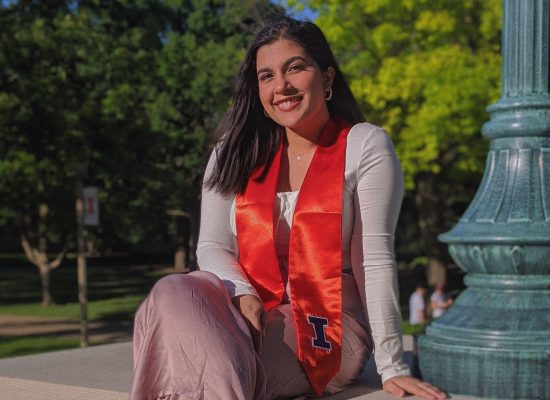
“My time with DSCC has not only shaped me as a social worker but also shaped my idea of the perfect team.”
As part of the University of Illinois Chicago, the Division of Specialized Care for Children (DSCC) offers internships and other valuable educational opportunities to college students. These opportunities help students gain real-world experience and complete their advanced degrees.
They also help develop the next generation of social workers, nurses and health care providers to serve children and families with understanding and compassion.
To celebrate Social Work Month, we’re sharing how a DSCC internship provided life-changing experiences for one young social worker.
“My time with DSCC has not only shaped me as a social worker but also shaped my idea of the perfect team,” said Sruthi Thinakkal.
Sruthi wrapped up her two-semester internship with our Marion and Olney Regional Offices in December 2021. She recently graduated with her master’s degree in social work through the BHWELL Scholars Program at the University of Illinois at Urbana-Champaign.
Drawn to partner, help and connect
Sruthi said she discovered DSCC through her advisor. When she first began looking for internships, she was struggling to find the right fit.
About a month before she had to make her decision, Sruthi’s advisor mentioned a new internship opportunity with DSCC that recently opened.
Sruthi did her research and liked DSCC’s mission and approach to helping families. She decided to apply.
“The emphasis was on partnering with families and communities to help children and youth with special healthcare needs connect to services and resources,” she said. “Also, that children and youth with special healthcare needs should be at the center of a seamless support system really stuck with me.”
When Marion and Olney Regional Manager Amy Jones reached out to Sruthi, the “deal was sealed.”
“She spoke passionately about providing families support and teaching them the skills needed for success. Her enthusiasm and sincerity were contagious,” Sruthi said.
She felt excited but worried she would miss out on important opportunities because of the pandemic and working remotely.
Sruthi soon learned she was “in a really good place” and that remote work would be smooth and successful.
“A true team approach”
“From the beginning, the Olney and Marion regional offices provided me with information, cheat sheets, everything I needed to get situated. They would reach out in so many ways,” Sruthi said. “We used chat and had weekly meetings to bond and catch up. It was AMAZING, a true team approach.“
Sruthi shadowed DSCC Care Coordinators during their comprehensive assessments and person-centered planning conversations with families. She also helped Care Coordinators with data entry, scheduling and making calls to families.
One of Sruthi’s major accomplishments during her internship was a guardianship project for DSCC families and staff members in southern Illinois.
Sruthi created an extensive, easy-to-click-through tool kit that includes definitions for the various guardianship processes, step-by-step instructions, courthouse contacts, blank copies of needed forms and legal resources. She presented the toolkit to a group of more than 50 DSCC staff members in the southern region of Illinois.
“Sruthi’s project focused on (the question), could families complete this type of process on their own?” Amy said. “She diligently contacted all 32 courthouses in both regions, put together a comprehensive tool kit, then partnered with Care Coordinators to make calls and contact families. Already, one family she helped has successfully completed the process and another continues to work through the process.”
Amy praised Sruthi’s eagerness to learn and ability to soak up information.
Lessons for a lifetime
The end of the internship was bittersweet for both Sruthi and the Marion and Olney office teams.
“It’s hard leaving a fantastic team but the lessons I’ve learned will be with me always,” Sruthi said.
“One of the biggest takeaways for me is the importance of just being there and listening. Chatting about every aspect of a kiddo, providing space to vent, helping to arrange something for a family that has so much going on every moment and obstacles no one expected, getting to know parents who are so worried about their kiddos that they forget about their own health, and hearing how they feel alone, not lonely,” she continued.
“These conversations with families each month create an everlasting relationship and lessons that I will carry with me for a lifetime.”
Sruthi is now moving to Chicago and launching her career in social work. She’s ready to take what she’s learned at DSCC and put it into action.
“I’m so grateful for my internship at DSCC,” she said.
“I will be working with the Rush Craniofacial Center team and believe that my internship experience at DSCC was key to helping me move into this position. I’m looking forward to building new partnerships, connecting individuals to the programs and tools needed for self-determination, and making sure that each patient knows that they have a team behind them that genuinely cares.”
DSCC Participant’s ‘Baby Bucket List’ Spreads Awareness and Joy
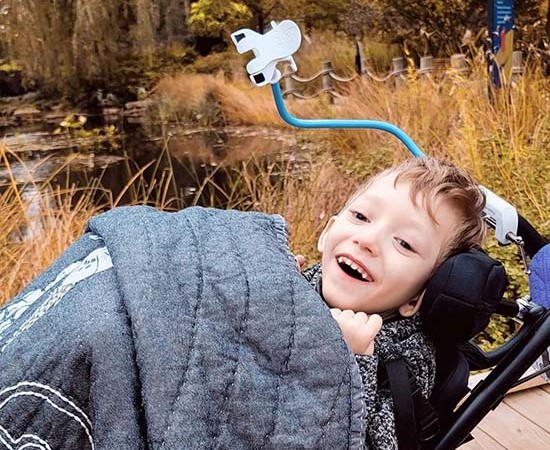
Elijah’s Baby Bucket List is a social media movement raising awareness about lissencephaly while helping 4-year-old Elijah live life to the fullest
Elijah is quite the celebrity and not just among his nine older siblings.
The 4-year-old was born with a rare, terminal genetic condition called lissencephaly.
The devastating diagnosis led his family to create a bucket list to fill Elijah’s lifetime with as much happiness and adventure as possible.
“Elijah’s Baby Bucket List” is now a popular social media movement dedicated to raising awareness about lissencephaly. It also provides opportunities for Elijah to live life to the fullest while spreading joy and making new friends and memories.
Elijah’s story has appeared on TV, in print and online. He also has thousands of followers from around the globe on platforms including Facebook, Instagram, YouTube and TikTok. His followers read about his latest experiences and enjoy videos of his infectious laughter and smile.
“He’s always happy, always laughing. It’s hard to stay sad when he’s around,” said his mother, Amy Tarpein. “He is unconditional love and the embodiment of pure joy.”
“Choose joy”
Elijah, a participant with the University of Illinois Chicago’s Division of Specialized Care for Children (DSCC), was born deaf. Approximately two months later, he was diagnosed with lissencephaly.
Lissencephaly occurs when the folds and grooves of the brain do not develop correctly.
“It was devastating. The doctors said he wouldn’t live beyond the age of 2,” Amy recalled. “We were packed and ready to spend time at my sister’s. Instead, I loaded up the kids, left the hospital and we drove to Florida to see the ocean.”
During that trip, the idea for Elijah’s Baby Bucket List was born.
“It can all be really hard, but we decided that we could either sit around and feel sorry about things or choose to give Elijah the best, God-filled life possible while he’s here. We decided to choose joy, be grateful, encourage others and hope,” Amy said.
Through “Elijah’s Baby Bucket List”, the family shares inspirational messages, videos and updates as they work through experiences on Elijah’s bucket list.
“We’ve shared about the first time he heard his sister sing, visits to the hospital and doctors, and our adventures to the Morton Arboretum, Beyond Van Gogh Exhibit, St. Louis Aquarium, hiking in the mountains, observing stars with a NASA scientist, picking pumpkins, playing in the leaves and a private screening of ‘Clifford the Big Red Dog,’” Amy said.
“The focus is on Elijah doing or watching the things on the list and making as many memories and friends as possible!”
Other recent highlights include the city of Quincy declaring Sept. 8 as Lissencephaly Awareness Day and lighting the Bayview Bridge purple in his honor. The Quincy Herald-Whig newspaper covered the special honor and Elijah’s story last fall.
“Our town came together to spread awareness and advocate for kids who are differently-abled. They lit up the bridge purple for Elijah, ” Amy said. “I can’t express the emotion that overwhelmed me when we were also given a beautiful photo of the purple bridge taken by a local artist. The community support for my family has been amazing.”
“Be a light”
Amy says her family loves Elijah fiercely. He has five grown siblings and four at home — Avayha, Isaiah, Kaylynn and Mackenzie – who dote on him.
They enjoy spending time together reading, studying, looking at and doing art, listening to music and cuddling.
“Avayha practices violin with him. She tells him the strings and what she’s playing. He loves music,” said Amy. “When we go to museums, she will read all of the descriptions and tell him about the exhibits and artwork.”
Elijah’s lessons include learning sign language and using his computer with an eye gaze device.
“He’s doing stuff they said he would never do,” Amy said. “He’s gotten really good at matching his letters, numbers, colors and shapes. He signs mom, dad, call, dog, no and will also sign ‘all done’ when he doesn’t want to get into his AFOs, the orthotics braces, because they are uncomfortable.”
Elijah’s sister Avayha wants to take him to Paris to drink lemonade and see the museums. She set up a lemonade stand to fund the trip, but the COVID-19 pandemic soon followed.
“Avayha asked if she could learn web design, so she could build up her own site,” Amy said proudly. “At 9-years-old, she studied and set everything up on her own. She’s determined to take him.”
Avayha’s website is Lemonade in Paris.
Amy calls caring for Elijah life-changing in the best possible ways.
“If someone had told me that five years ago, I would not have believed it. This was not the plan, but I love my life,” she said.
More to Explore
DSCC has worked with Elijah’s family since 2019. As Elijah continues to check off items from his baby bucket list, DSCC continues to help support his family’s journey.
“DSCC collaborates with a wide range of agencies,” said Elijah’s Care Coordinator Kathy Thomas. “We’re here to listen and help families with children with complex health needs navigate insurance, health care and other resources.”
DSCC’s Care Coordinators work countless hours helping families set and achieve their child’s goals based on their family’s unique needs.
Amy continues to plan new adventures for Elijah, stay positive and share the positivity with others.
“Elijah continues to defy the odds,” she said.
“Some things can’t be fixed, only carried! Life is full of things you can’t fix, no matter how well-intentioned you are. God, your higher power or whatever you believe in, always sends someone. I can’t explain half the stuff that happens in our lives, but we are braver together. This was not my plan, but I am truly blessed to be his momma.”
To learn more about Elijah and lissencephaly, follow Elijah’s Baby Bucket List on Facebook or visit elijahsbabybucketlist.com.
Parent Education Workshop Series Open to All DSCC Families

DSCC partners with IL LEND to offer an online space for parents to learn about important topics, gain resources and discuss strategies
A new webinar series provides an online space for parents and caregivers to access educational workshops, learn about resources and discuss strategies and support needs.
The series is open to all parents and caregivers of children enrolled with the University of Illinois Chicago’s Division of Specialized Care for Children (DSCC).
It’s the result of a partnership between DSCC and UIC’s Leadership and Education in Neurodevelopmental and related Disabilities Program (IL LEND).
There is no cost for families to participate.
Please note this workshop series now has a parent education focus rather than a traditional support group.
The virtual workshops will take place via Zoom on the third Wednesday of the month through April.
Workshops topics may include:
- Respite care
- Feeding
- Ventilator maintenance/cleaning
- Transportation
- Navigating relationships with staff
The workshop schedule is for the following dates from 7 to 8 p.m.:
- Feb. 16
- March 16
- April 20
The topic for the Feb.16 session is Early Intervention. The guest speaker is Maria Kastanis, assistant director of the Early Intervention Training Program (EITP) at the University of Illinois at Urbana-Champaign.
The details and registration information for the next meeting are below:
- WHAT: Educational workshop series for parents/caregivers of children and youth enrolled in DSCC’s programs
- WHEN: Feb. 16, 7 to 8 p.m.
- TOPIC: Early Intervention (Note: the discussion part of the workshop will include a facilitator for Spanish-speaking families.)
- WHERE: Virtual via Zoom
- Registration link
Visit the workshop series website for more details about the series and individual meetings.
We’ll also post details about upcoming meetings in the Events section of our website.
If you have questions about the series or an individual meeting, please fill out the Contact Us section of the workshop series website.
Program Coordinator Assistant Earns DSCC’s 2021 Merit Award
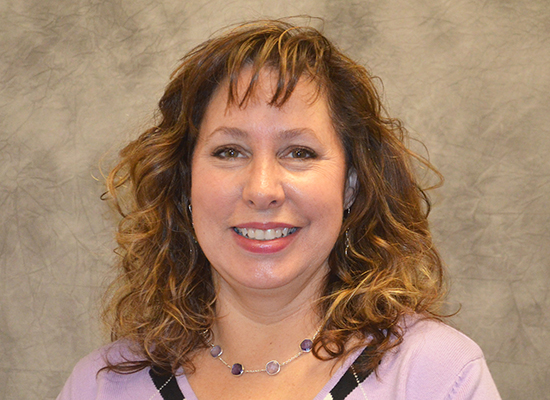
Kimberley Firkins recognized for exemplifying DSCC’s mission to partner, help and connect
Kimberley Firkins is the 2021 recipient of the Award of Merit from the University of Illinois Chicago’s Division of Specialized Care for Children (DSCC).
The award recognizes exceptional employees for outstanding dedication and service to Illinois children with special healthcare needs.
Kimberley, also known as “Kim” or “Kimba“ to co-workers, is a Program Coordinator Assistant for Home Care Region 2. She is based in the Lombard Regional Office.
Program Coordinator Assistants work as a team with Care Coordinators to meet our participant families’ needs.
Kimberley is a team player and a constant source of encouragement and support for her participant families and co-workers alike.
Her colleagues say she is friendly, welcoming and gladly offers her creativity, knowledge and skills to assist wherever needed.
She sends her Lombard teammates positive messages and self-care tips weekly to keep everyone motivated and foster a positive work environment. Those messages have helped bridge the “disconnect” of working remotely through the pandemic.
Co-workers say her calm and caring nature puts the families she works with at ease.
“Kimberley’s enthusiasm and passion for serving others are an inspiration to many,” said DSCC Executive Director Thomas Jerkovitz. “The past two years have been challenging. Kimberley’s teamwork spirit highlights that the way we are working may be different, but our dedication to each other and our participant families remains strong.”
Kimberley has worked at DSCC for 16 years in the Core and Home Care programs.
“I would like to say how fortunate I am to work in an organization that makes such a huge impact to so many people and families, especially over the last almost two years,” Kimberley said.
“I hear from families almost every day how important it is for them to hear from their care coordination team not just as their Care Coordinators or the Care Coordinators’ Assistants but as their friends as well, wanting to know how they’re doing, how things are going, and how they’re handling all of the stressors that are happening right now. It just means so much to me to know that our organization has that place in their family.”
Kimberley was an Award of Merit nominee in 2016, 2018, 2019 and 2020. She said she is both honored and surprised to receive the 2021 award.
“I am so very grateful. It means the world to me, but I don’t do what I do without everyone else. We’re all one team. We all won this,” she said.
DSCC staff nominated a total of six of their colleagues for this year’s Award of Merit. As the winner, Firkins receives an Award of Merit memento, a $2,500 award and recognition from the Executive Director.
The other 2021 nominees are:
- Cynthia Booth, Home Care Program Hospital Liaison, Chicago Home Care Regional Office
- Becca Hunt, Care Coordinator, Marion Regional Office
- Danielle Osburn, Claims Unit Assistant Supervisor, Central Administrative Office
- Tess Rhodes, Quality Improvement Specialist with Core Quality Improvement, Central Administrative Office
- Marian Walles, Care Coordinator, Mokena Regional Office
Congratulations, Kimberley! And a big thank you to all the nominees for their excellence on behalf of our children and families!
Transition Conference Prepares Youth With Disabilities for Adulthood
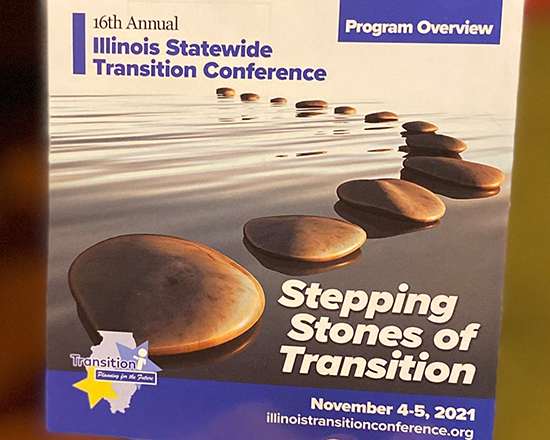
Families and professionals came together in person and virtually at the annual Stepping Stones of Transition Conference in East Peoria to improve outcomes for transition-age youth with special needs
As a single parent raising a child with complex medical needs, Kristen Fisher says it’s easy to feel isolated.
The feeling subsided as she walked through the East Peoria Riverfront Conference Center and saw dozens of other parents and youth with similar needs.
“Seeing everyone at the conference and meeting other parents, it helps confirm that I’m not alone,” Kristen said.
The Illinois Statewide Transition Conference, titled “Stepping Stones of Transition,” returned for its 16th year on Nov. 4-5 in East Peoria after a one-year absence due to the COVID-19 pandemic.
More than 660 families and professionals gathered in-person and virtually to gain skills, resources and information to help youth with disabilities prepare for adulthood.
The University of Illinois Chicago’s Division of Specialized Care for Children (DSCC) is a conference sponsor and served on its steering committee.
DSCC covered the conference-related expenses for 33 of our participant family members across the state.
A “Phenomenal” Experience
Kristen is the mother of DSCC participant Connor Fisher, who will soon turn 15 years old. He was born prematurely with profound delays and a “smile that will melt your heart,” she said.
This year’s conference was Kristen’s first and she called the experience “phenomenal.”
“It’s hard to grasp that my baby is not a baby. He’s growing up. It’s a scary transition,” she said.
Kristen particularly enjoyed the breakout session “SSI, SSDI, HFS: Understanding the Alphabet Soup of Government Benefits.” She gained a better understanding of available government benefits and how they change over the lifetime.
DSCC mom Amy also learned helpful information during the breakout session on government benefits. She said financial planning is an important part of preparing for her daughter Jaida’s future. Jaida, 17, has been a DSCC participant since just after birth.
Eighteen-year-old DSCC participant RJ Smith attended the conference with his mom, Karla. It was the first time attending for both.
RJ is a senior in high school who plays the baritone in his high school band. He wants to go to culinary school after graduation to become a baker.
He picked all the conference breakout sessions that he and Karla attended.
One of their favorites was about the Fast Track Transition Program through the Illinois Department of Human Services’ Division of Rehabilitation Services. The program provides pre-employment transition services to students with disabilities.
RJ said he is ready for more independence, and Karla said the session helped open her eyes to more options to help achieve that.
“I want to help him become more independent and push him toward that but not just leave him sitting the middle of the road, stranded,” Karla said. “(The conference) overall has been helpful.”
Preparing for Life After Graduation
The conference consisted of informative breakout sessions in the areas of:
- Employment
- Education
- Community
- Health Care
DSCC participant Michael Rounds, 15, said he enjoyed the breakout session on the Culture of Coordinated Support Model. This model is where people with disabilities, families, supporters, agencies and service providers work together to develop and implement consistent support plans with unified goals and services provided by the provider best suited to do so.
Michael said the session made him think about getting more involved with his Individualized Education Program (IEP) at school. He also liked learning more about what choices are available to him as he plans for his future.
His mother, Lori, said the conference helped her know where to start in preparing Michael for life after high school graduation.
Rosa Menard, mom to 17-year-old DSCC participant Jacob, said the amount of information to soak up over the two-day conference was almost overwhelming. She took many notes about potential resources and programs to discuss during Jacob’s next IEP meeting.
Jacob is non-verbal and she wants to set him up for success after high school.
Rosa encouraged other families to start the transition planning process as soon as possible.
“Start asking those questions now,” she said.
Improving Outcomes
Nearly 40 DSCC staff members attended the conference in-person or virtually to network, learn from others and strengthen their skillsets and tools to serve our families.
DSCC also sponsored the conference’s health care track for providers who play a role in the transition from the pediatric to adult healthcare system and those who build youth’s capacity and healthcare skills to prepare for adulthood.
DSCC Transition Specialist Darcy Contri said attending providers found helpful tips and information they will apply in their own practices and interactions with youth and families. These changes include:
- Starting the transition planning process sooner with patients and families
- Making sure the youth and their family are included in all decision-making and planning
- Keeping a holistic view of the patient and noting environmental barriers for their family
- Emphasizing self-determination when working with youth and families on transition goals
- Discussion of self-management strategies with youth and families
Darcy has been involved with planning the conference for the last 16 years.
“Every year it has been exciting to see the positive impact the transition conference has on improving outcomes for Illinois transition-age youth and their families,” she said.
Visit our Facebook page to see more photos from this year’s conference.
New Support Group and Workshop Series for Home Care Families
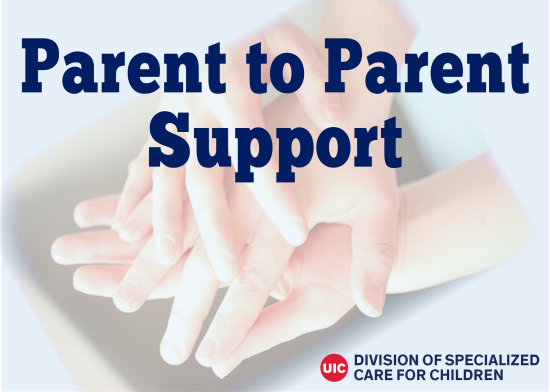
UPDATE: Please note this support group is now open to all families of children enrolled with the Division of Specialized Care for Children. See the latest support group news for more details.
The University of Illinois Chicago’s Division of Specialized Care for Children (DSCC) is partnering with UIC’s Leadership and Education in Neurodevelopmental and related Disabilities Program (IL LEND) to offer a support group for families enrolled in the Home Care Program.
The Home Care Program helps children and adults who require in-home nursing care. DSCC operates the Home Care Program on behalf of the Illinois Department of Healthcare and Family Services.
This support group will provide an online space for parents to access educational workshops and swap concerns, resources and strategies.
There is no cost for families to participate.
The group will meet on the third Wednesday of the month from November through April.
Workshops topics may include:
- Respite care
- Feeding
- Ventilator maintenance/cleaning
- Transportation
- Navigating relationships with Home Care staff
IL LEND would also like to hear families’ ideas for future support groups and workshop topics. You can share your feedback on this brief online form.
The support group schedule is for the following dates from 5:30 to 6:30 p.m.:
- Nov. 17
- Jan. 19
- Feb. 16
- March 16
- April 20
Here are details for the first session:
- WHAT: Virtual support group/workshop series for parents/caregivers of children and adults enrolled in the Home Care Program.
- WHEN: Nov. 17 from 5:30 to 6:30 p.m.
- TOPIC: Navigating the COVID-19 Pandemic (Note, the discussion portion of the support group will include a facilitator for Spanish-speaking families.)
- WHERE: Virtual via Zoom
- REGISTER: Please sign up online in advance. After registering, you will receive a confirmation email containing information about joining the workshop discussion via Zoom.
New Monthly Mama Therapy Group for Central Illinois Caregivers
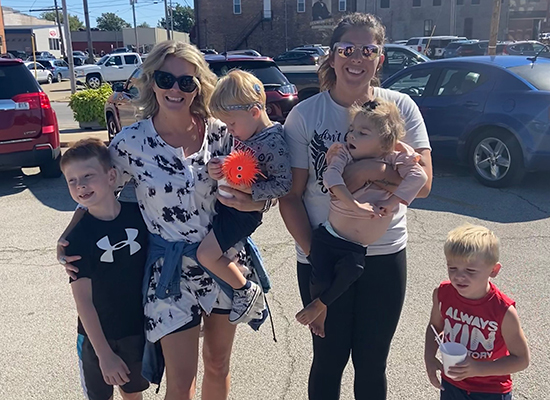
A DSCC mom and her friend started the Facebook group to connect with other parents of children with special needs
Thanks to an outing at a coffee shop, hearing aids and an impromptu conversation, two moms with children of similar ages and needs connected.
“I saw her daughter’s hearing aids. My son has them, too, so I just started talking to her,” Lace Mandrell said of her first meeting with Bailey McBurney Imig.
In no time Lace and Bailey were texting, talking and sharing tips, concerns and road trips to specialists.
Their immediate connection led to a new Facebook group called “Monthly Mama Therapy.”
Monthly Mama Therapy aims to help central Illinois caregivers of children with special needs connect with and support one another.
“If you’re trying to understand a diagnosis or therapy, running from appointment to appointment or saving for the next piece of equipment, things can be challenging,” said Lace “We just thought that having a network of moms with a wide range of experiences, ready to back you up on the good days and the bad days, would be amazing.”
Lace is the mother of two sons, Ollie and Auggie. Auggie, 3, is bilaterally deaf and has had cochlear implant surgery. He also has Chiari Malformation and was diagnosed with Waardenburg Syndrome.
“He’s a wild child who rarely stops moving,” Lace said. “He’s sweet, inquisitive and a little sponge excited about learning and soaking up everything around him.”
Auggie is a participant in the University of Illinois Chicago’s Division of Specialized Care for Children (DSCC). He has been enrolled with DSCC since 2019.
Bailey McBurney Imig is also the mother of two: Paxton, 3, and Parker, 2 1/2. Parker is deaf and has undergone multiple screenings and tests. There is still no diagnosis for her other conditions.
“With all of the testing and so few answers, I feel like she’s probably that one in a million child who will have a diagnosis named after her,” Bailey said. “But, despite all her complications, Parker is a tiny, little bundle of joy who loves attention. She’s an easy-going cuddler who is almost always happy and smiling.”
During their first meeting, Lace and Bailey related to each other right away.
“We just hit it off and I’m so glad. With HIPAA (the Health Insurance Portability and Accountability Act) and concerns for privacy, it can make it hard to connect. Then COVID-19, online therapies and everything else got thrown in,” said Lace. “It’s hard to do this stuff alone. It can get really complicated and overwhelming.”
The more Bailey and Lace talked, the more they wanted other moms in the “same or similar boat” to have a safe space where their kids could connect and they could relax, share and recharge. The seed for Monthly Mama Therapy was planted.
Monthly Mama Therapy has a private Facebook page and hosts meet-ups at local parks, coffee shops and other venues in the Champaign and Bloomington areas. Conversations online and in-person may range from accessible parks and walking trails to experiences with therapies or the transition to school.
The group promotes “therapy” and the importance of caregivers taking care of their own needs, too.
“The online community is really growing. When someone asks a question, the support and responses have been great,” said Bailey. “Our ultimate goal is to build an in-person community that’s just as strong.”
Monthly Mama Therapy hopes to continue growing online and meeting in person when the weather turns cool at central Illinois locations where distancing is possible.
“Our wish list includes adding some veteran parents who are willing the help the ‘newbies’ navigate and prepare for the transitions ahead,” said Lace. “We’d also love to add activities like exercise or yoga to do together.”
For more information, visit the Monthly Mama Therapy Facebook page.



